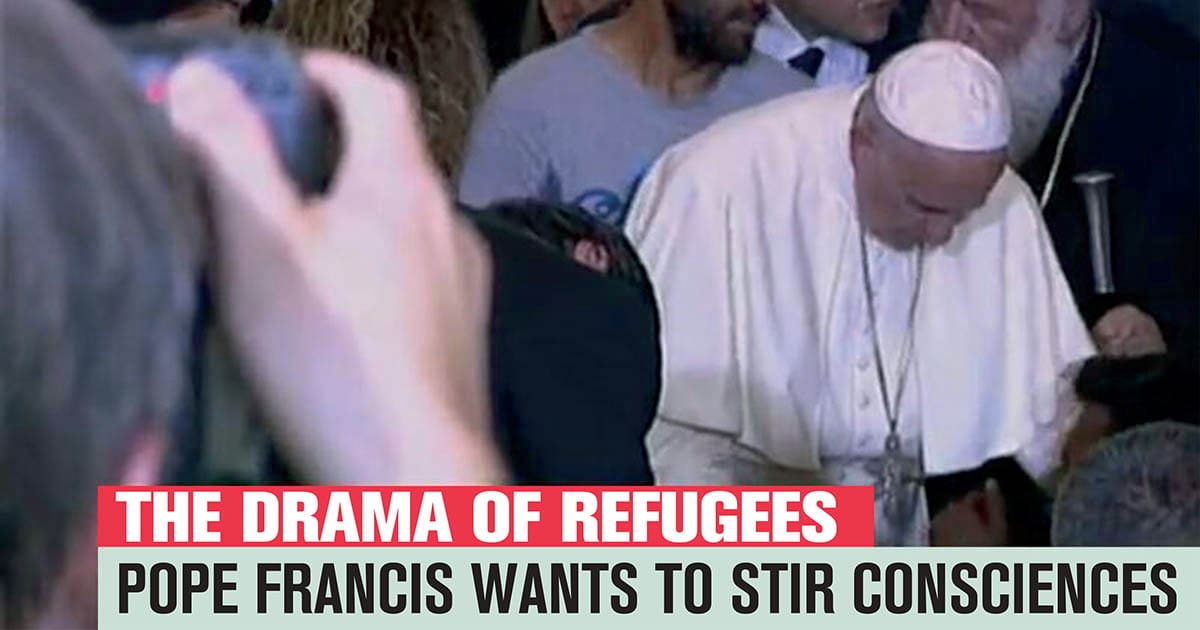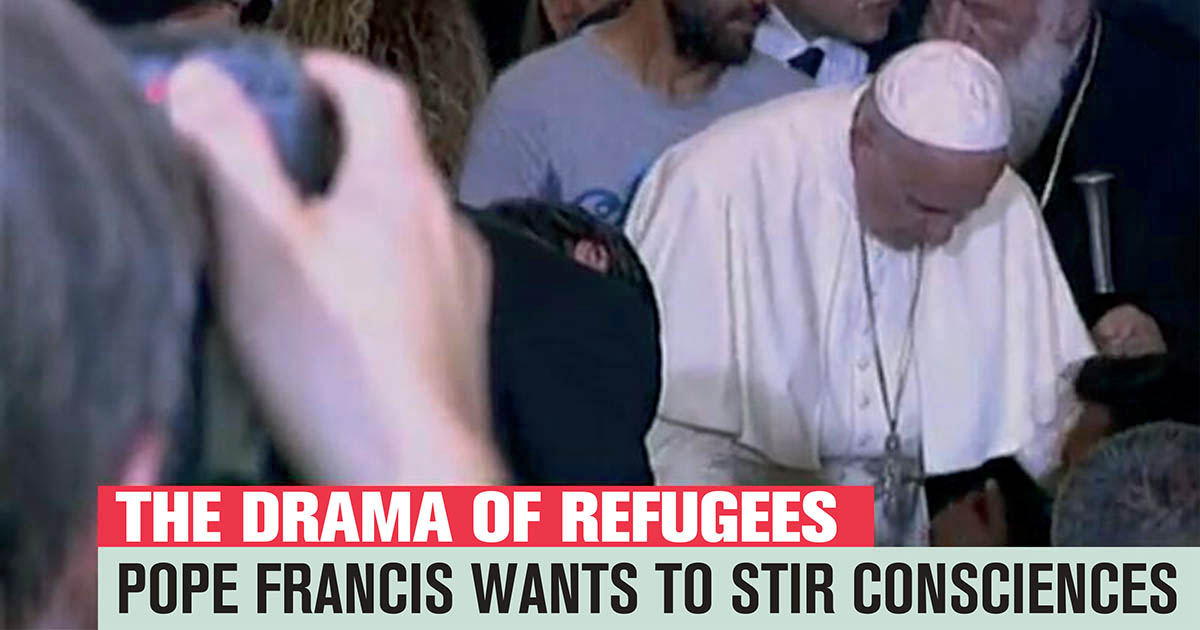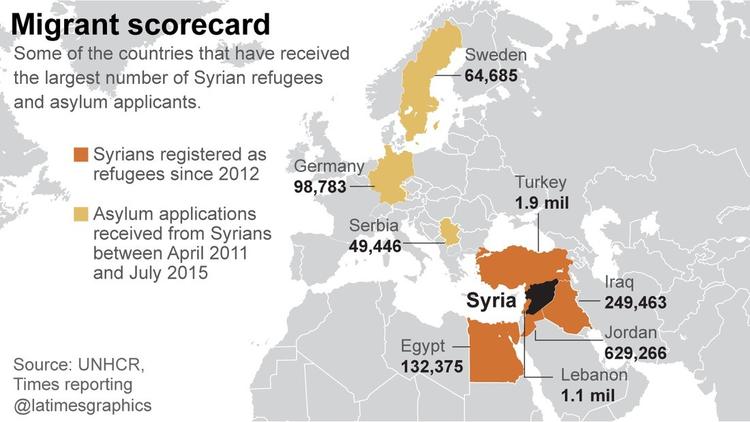People, faces, names, stories
This weekend, Pope Francis visited the refugee camp in Lesbos (Greece). With him were the leaders of the Orthodox Church, Patriarch Bartholomew of Constantinople, and Jerome II, Archbishop of Athens.
The news has not gone unnoticed in the European media, even if many newspapers have not classified it as headline news. Nor have negative comments —xenophobic even— been slow in coming. Users of European digital media asked for tougher policies on accommodation and the return of refugees to their places of origin. They demanded as well that the Church be the one to receive the immigrants. To reflect, however, on these anonymous comments would require much more space and would take me away from the main news.
The exodus of Syrian refugees is a global catastrophe, the worst catastrophe since the Second World War. Without doubt, it is also a challenge to global solidarity and the construction of a Europe —and a world—that is multicultural and aware of the problems faced by the poor.
The Pope, once again, did not want to be ambiguous or tepid. Preaching by example, he visited one of the most shameful sites to which this global disaster has given rise—Lesbos, Greece, where thousands of refugees are herded together, deprived of basic services, without receiving the slightest attention that human beings rightly deserve. European governments look the other way. NGOs and the Church, as so often happens, are the ones that devote themselves to relieving the needs of the refugees and denouncing the injustices that are part of daily life there. The “facelift” that the authorities gave the camp before the Holy Father’s visit remains significant, but for all the paint that was used, for all the food that was given out, there is no covering up the shame, the lack of rights and the abandonment that the refugees endure. Francis himself said when he arrived at the airport of Mytilene, in Lesbos: “The worries expressed by institutions and people, both in Greece and in other European countries, are understandable and legitimate. We must never forget, however, that migrants, rather than simply being a statistic, are first of all persons who have faces, names and individual stories.”
It is also significant that the Pope was accompanied by Patriarch Bartholomew and Archbishop Jerome, of the Orthodox Church. It is as if he wants to tell us that we will find true union among Christian churches and authentic ecumenism in serving the poor.
The words that Francis, Bartholomew and Jerome uttered are harsh. They are a prophetic cry that denounces injustice. They should never be forgotten. Transcending the refugees’ beliefs and places of origin, the cry of the poor, with thousands of them dying during the crossing, is a cry to heaven that demands redress and response: “World opinion cannot ignore the colossal humanitarian crisis created by the spread of violence and armed conflict, the persecution and displacement of religious and ethnic minorities, and the uprooting of families from their homes, in violation of their human dignity and their fundamental human rights and freedoms.”
His visit was full of gestures: listening, closeness and tenderness. We saw the Pope make a serious gesture against injustice and show closeness to those in need and great tenderness towards them.
We are not talking about charity, but rather about justice. Those who represent us are looking the other way, and we, the people, are giving our consent. The promises drowned in the offices of the European and world community and, especially, in the seas where many thousands died seeking a safe haven from war.
The images speak for themselves. If you have not seen them, don’t fail to see them. Words and speeches matter little. You can also easily find them in your language by searching the Internet. The crying boy who kneels down before the Pope and asks loudly: “Bless me, bless me,” or the tears of the girl who drops to the ground and starts kissing the Pope’s feet, while he bends down to lift her… this is something one cannot find in words… these are the images that reveal to us the shame of injustice surrounding the poor. Meanwhile, many of us live a fairly comfortable life.
And we Vincentians, what are we to say and do about all this? Are we there, too?
See again the videos of the visit:
Welcoming Ceremony:
Visit to the Mòria refugee camp:
Meeting with Catholic Community and Citizens:
Farewell Ceremony:
Javier F. Chento
![]() @javierchento
@javierchento
![]() JavierChento
JavierChento
Tags: refugees









0 Comments